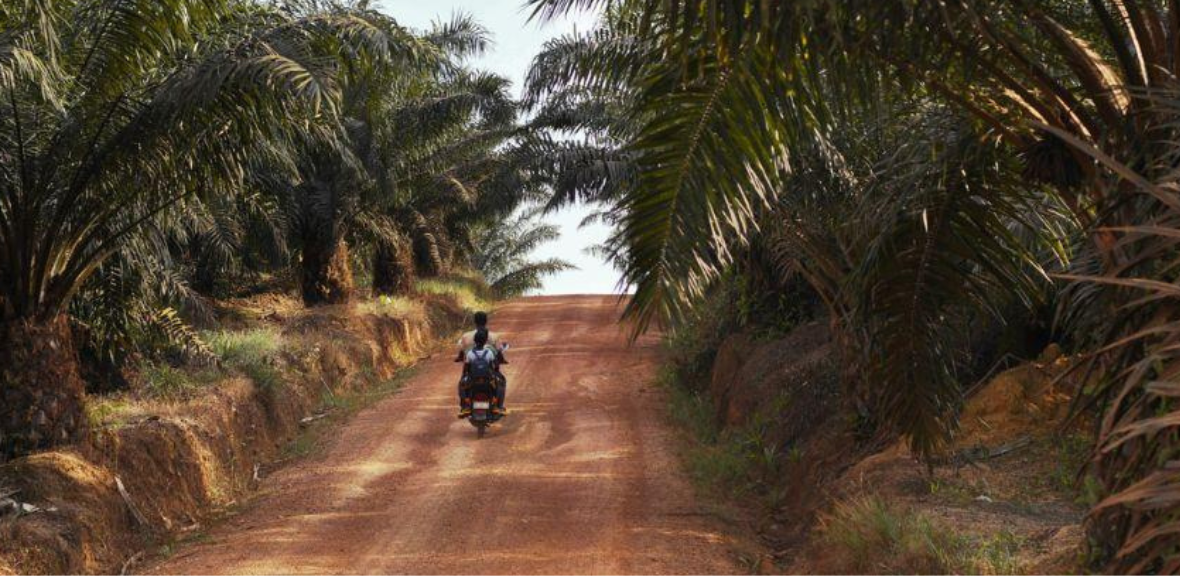
Submitted by Diane L. Lister on Tue, 15/04/2025 - 16:18
A recent paper published in the journal Agriculture, Ecosystems & Environment, co-authored by Jonathan Timperley, the CRI's Prof Edgar Turner, and Dr Michael Pahskevich, describes how oil palm farming methods in Liberia affect arthropod diversity, and suggests strategies to protect these key animals and help ensure the long-term sustainability of the West African oil palm industry. The authors are all members of the Department of Zoology's Insect Ecology Group.
Oil palm is widely grown in Southeast Asia, where its environmental effects are well studied. However, in West Africa - its native area - less research has been done, despite both traditional and industrial farming methods being used there.
Traditional “country palm” farming in West Africa involves growing oil palms naturally in the rainforest alongside other crops like rice and bananas. In contrast, industrial plantations involve clearing large areas of rainforest to plant oil palms in neat rows. These large farms often owned by foreign companies use intensive farming methods from Southeast Asia, including heavy use of chemicals.
Researchers studied the differences in arthropod biodiversity (insects, spiders, springtails, earwigs, and flies) across rainforest, country palm, and industrial plantations. They found that each system supports different types of arthropod communities, with country palm farms having the most spiders in both number and variety.
Arthropods play important roles in farming ecosystems. For example, spiders eat harmful pests that damage oil palms, while springtails and earwigs help recycle nutrients, and flies assist with pollination. Therefore, maintaining a healthy arthropod population can benefit both biodiversity and crop productivity.
To support these helpful animals, the researchers suggest keeping patches of forest near plantations, reducing chemical use, and planting native trees with oil palms. These strategies have worked in Southeast Asia but haven’t been tested much in West Africa. Testing them locally is important to improve biodiversity and ensure the long-term success of the oil palm industry in the region. Identifying such strategies is vital to ensuring the long-term sustainability of the West African oil palm industry.
Read the paper: Jonathan H. Timperley, Brogan L. Pett, Bility Geninyan, Ari Saputra, Abraham Vincent, Romeo Weah, Benedictus Freeman, Marshall Guahn, Peter M. Hadfield, Morris T. Jah, Tiecanna Jones, Rudy H. Widodo, Cicely A.M. Marshall, Edgar C. Turner, Michael D. Pashkevich, Traditional and industrial approaches to oil palm cultivation alter the biodiversity of ground-dwelling arthropods in Liberia (West Africa), Agriculture, Ecosystems & Environment, Volume 387, 2025, 109626, ISSN 0167-8809, https://doi.org/10.1016/j.agee.2025.109626.
Original article published on the Department of Zoology website by Abigail Youngman: https://www.zoo.cam.ac.uk/news/oil-palm-farming-west-africa-how-industrial-plantations-might-benefit-traditional-methods
